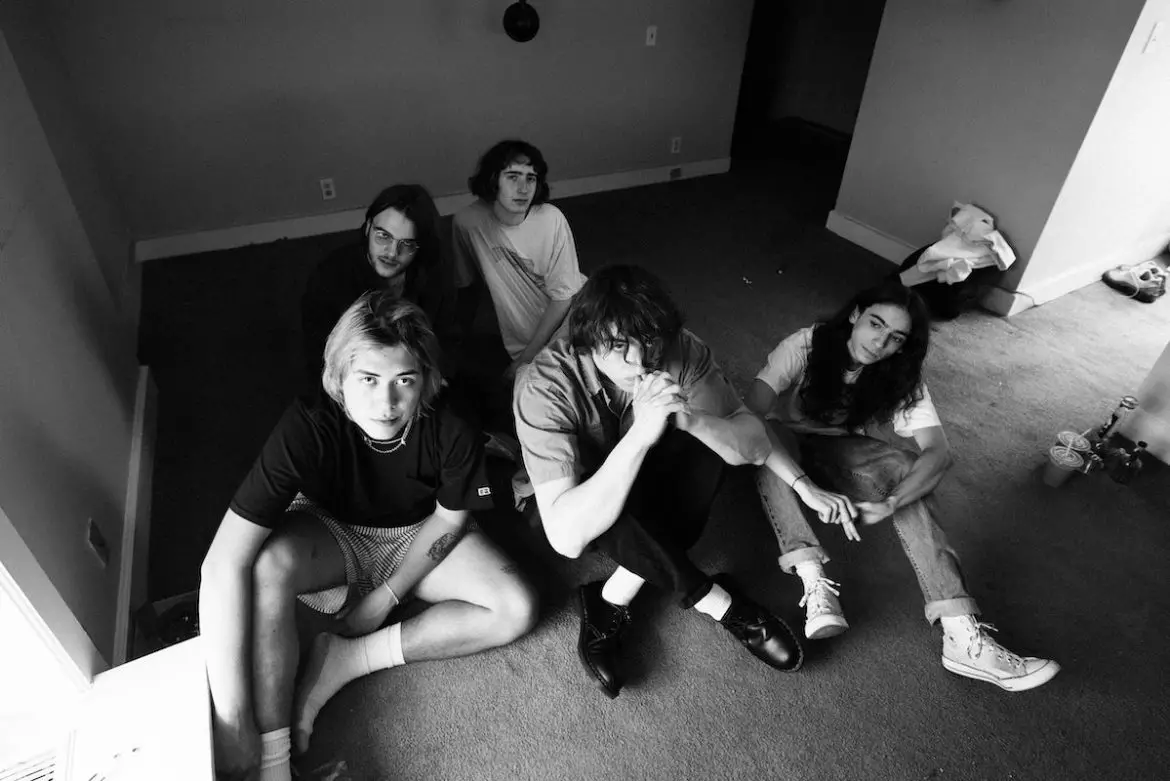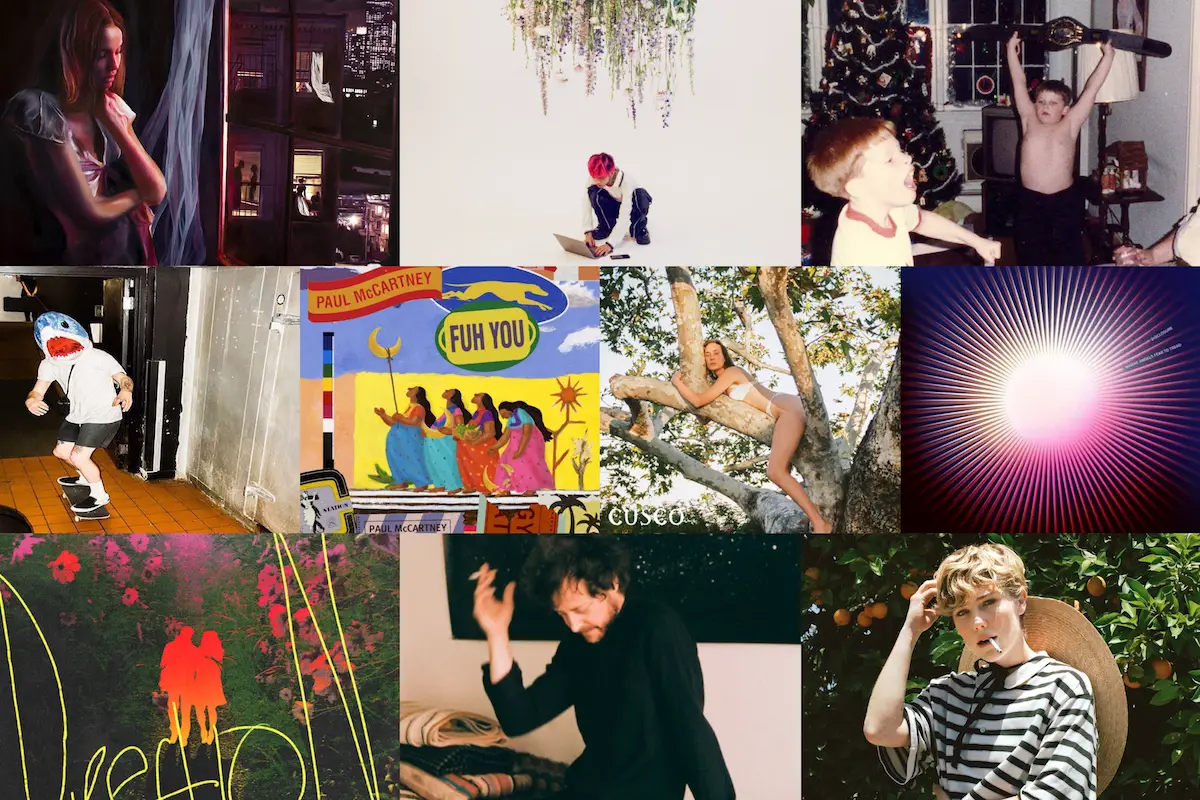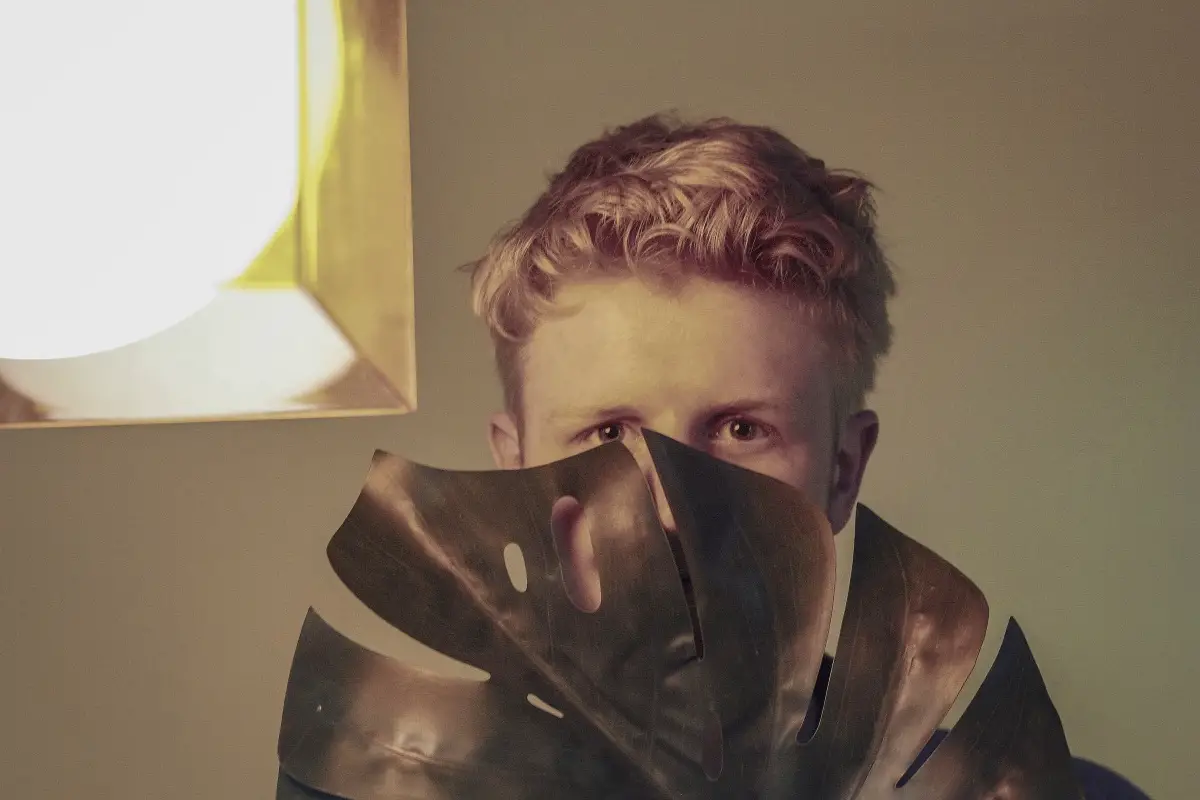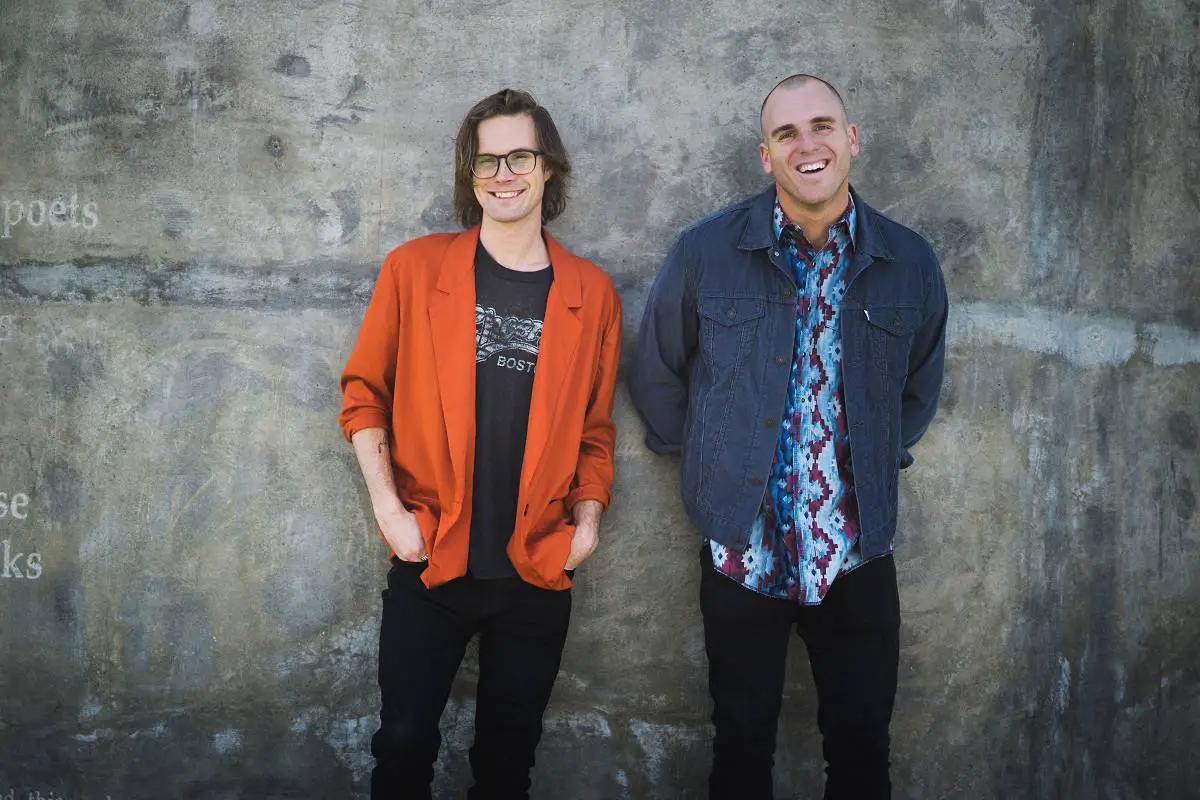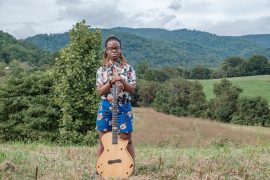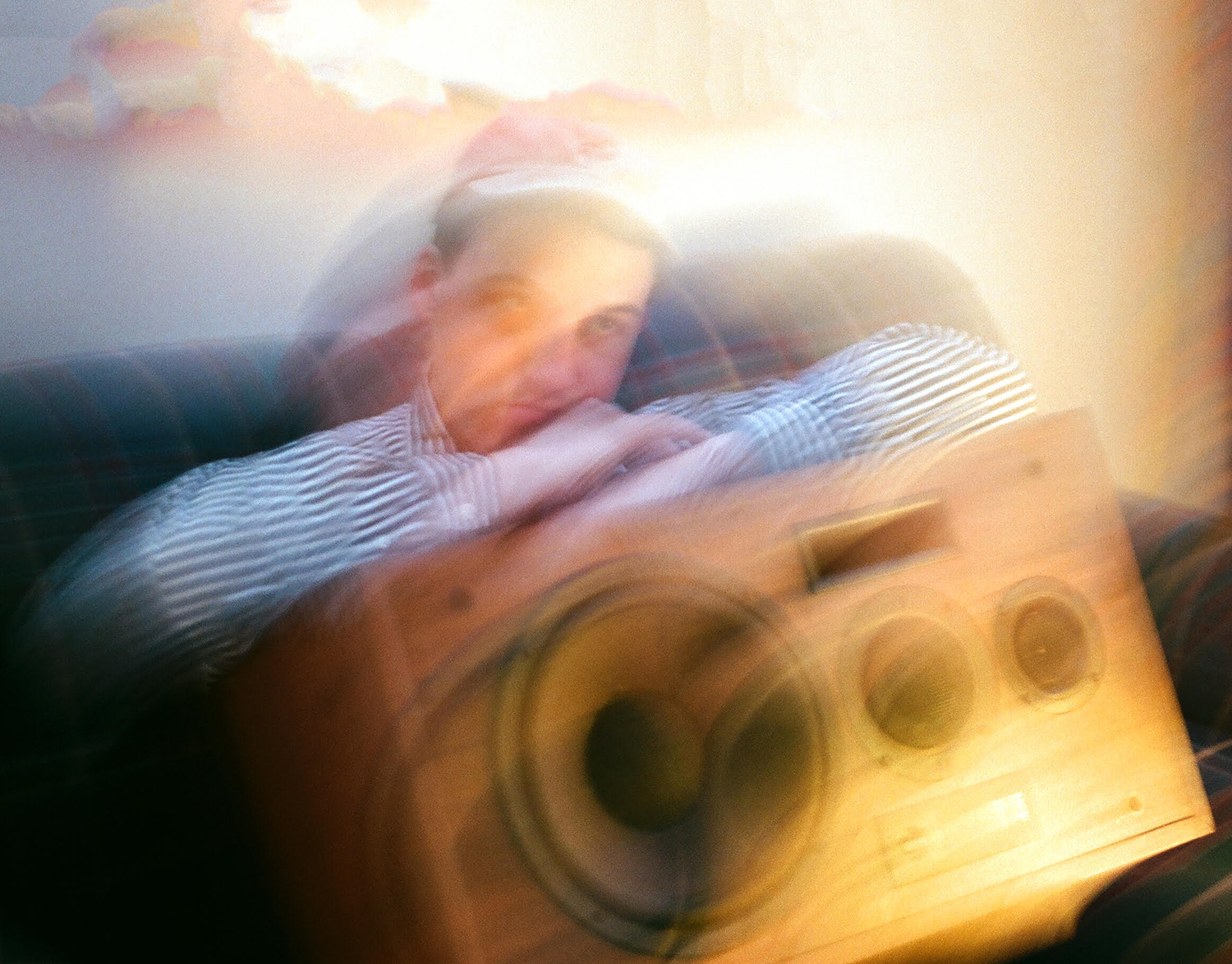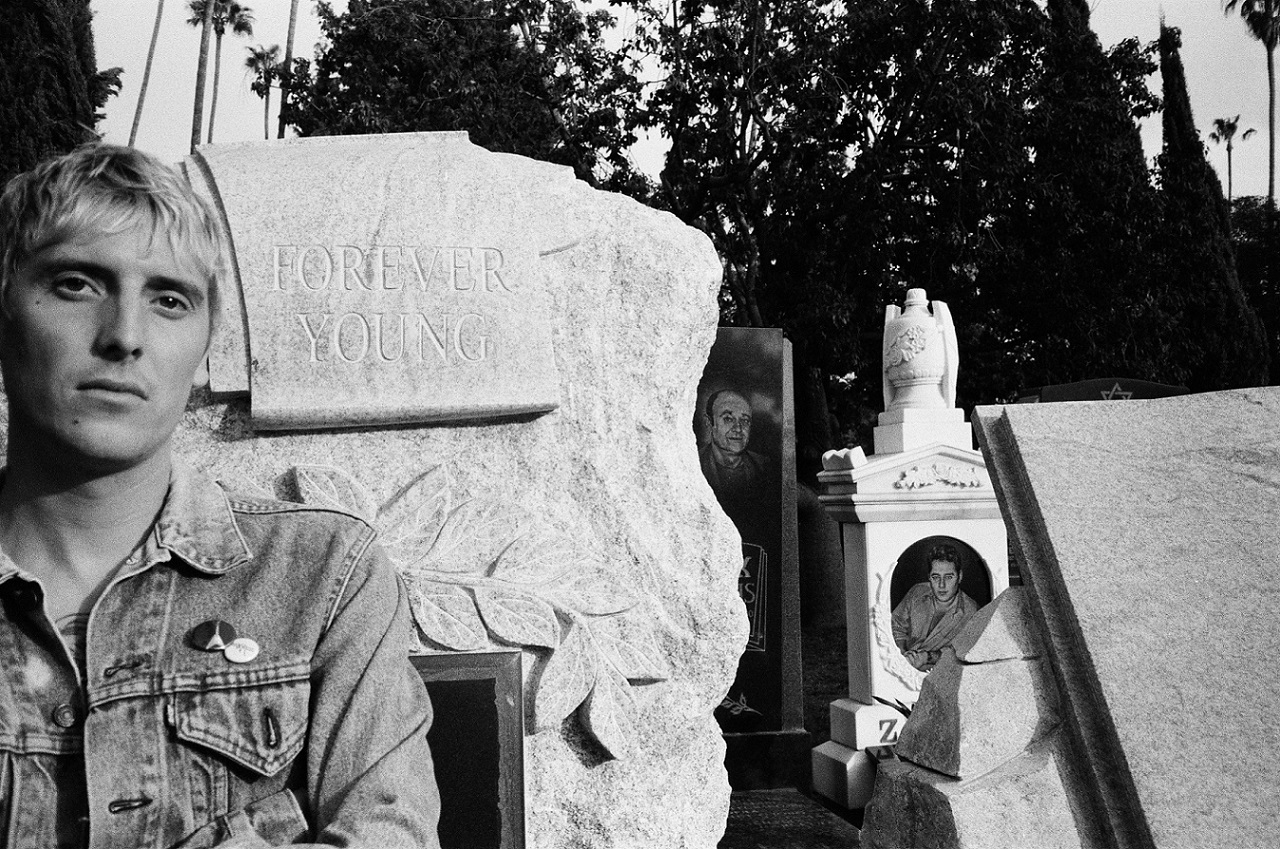Listening to anything by Geese is to be hit by the collective musical weight of an entire city. New York City, to be precise.
Stream: ‘Projector’ – Geese
We had zero opportunities at the time of writing “Opportunity is Knocking.” I tried to work really hard on those lyrics and they’re about trying to dissect what the experience of growing up was at that moment.
There’s one thing I’ll always miss about Boise. The sunsets. And yet, every night I find myself too busy to really enjoy them. Too much good music, I suppose. “Fuck it, I’ll get it next time,” I must think to myself.
But atop the Owyhee, overlooking the Saturday sunset of Boise, I finally corralled my last interview of the festival with Geese, a band that caught the indie rock world’s attention with a powerful debut. After finishing, we all took a minute to enjoy the painted sky on a high desert before the band would head off to their own festivities, and I would begin my own trek to and fro each venue possible.
In an instant, the weight of a city alive must have all hit us. Or, at the very least, it hit me. And that’s enough to make for a solid intro and segue into just how Geese’s debut record should hit the earnest audience.
Listening to Projector is to be hit by the collective musical weight of an entire city.
New York City, to be precise.
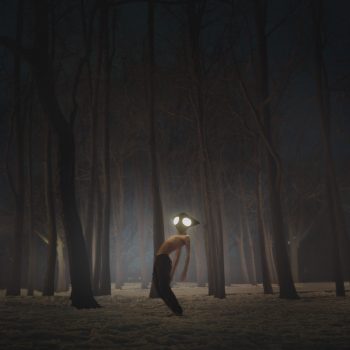
Encapsulating a mega-city ennui, the geographic tinsel wrapped around the sonic on Projector is unmistakably that of the underground Knickerbocker, one howling in tongues of punks past until you’ve been crushed by an asteroid the size of Five Burroughs.
The voice of Geese is virtuoso Cameron Winter. Winter can talk it out like James Murphy, meltdown like Julian Casablancas, croon like Andrew Savage and mewl like Thome Yorke for a Transatlantic change.
Sounding the particular displeasure for generation lost on an overcrowded planet headed for heat death, his sensibility for when and how to use his voice only makes the restlessness of his age more poignant, more palpable. It all combines into a six-foot teenage warrior-poet who would rather be singing in an Age of Aquarius as he does on “Opportunity is Knocking.”
Everywhere, there’s a man like me
therе’s a man like me
and each onе wants to kill the other
you know I’ve never been a fighter
this land is here for lovers
Gus Green, the long, lanky lead guitarist, accompanies Cameron Winter’s virtuosity with a variety of fills pulled from more than just Parquet Courts and Strokes records; they touch on the multilayered prog-rock mania of Close to the Edge just as much as they indulge in the freewheeling rollick of Marquee Moon. But it’s not just him on the record, guitarist Foster Hudson and Green split duties between rhythm and lead.
No better is this seen than on “Disco,” the stormy multisection middle track off Projector. For their set at Treefort, however, Green and touring keyboardist Sam work together to build new takes on recorded material. As Green says, “If we record ‘Disco’ today, it would sound pretty different.”
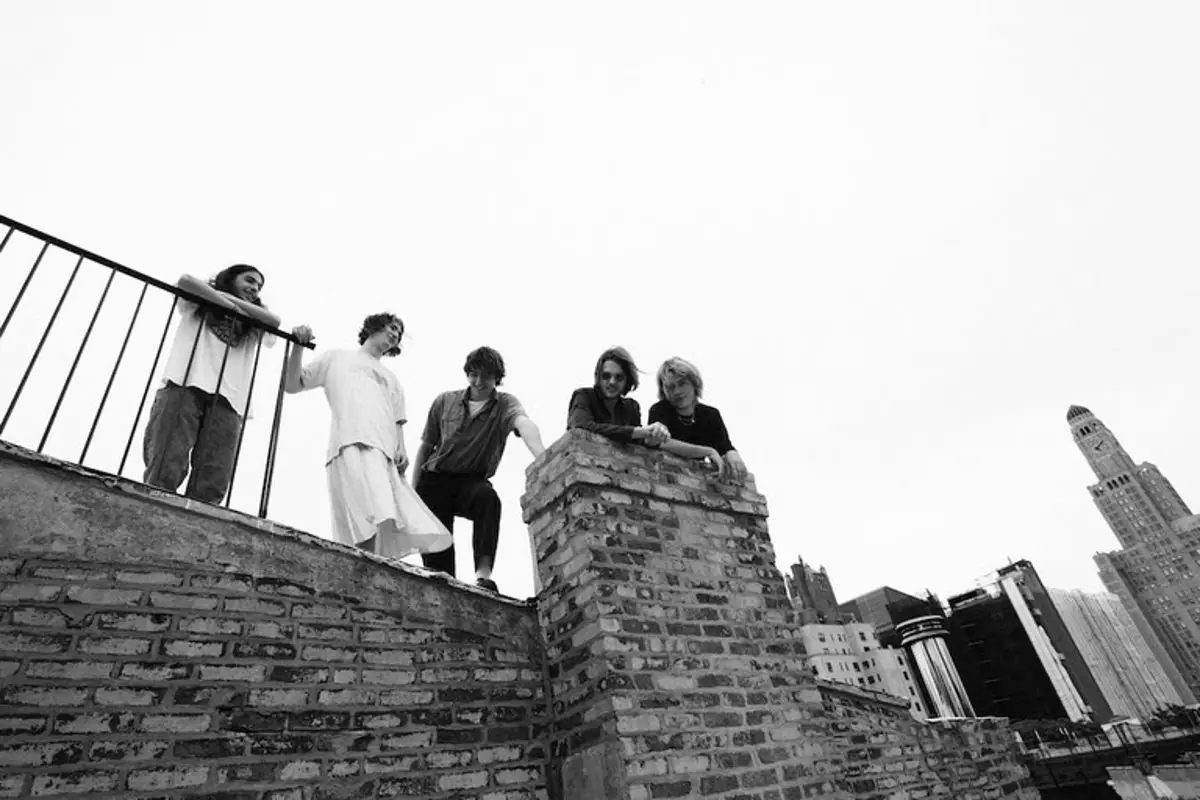
On bass, mighty mouse Dominic DiGesu packs a big axe and an even bigger thrum and hum for the band, working with drummer Max Bassin to meter their album and live show. While the whole band contributes to every song, DiGesu and Bassin work as a rhythm section power-duo, building the backbone to cuts in sessions.
Bassin who was busy offloading gear, is unmistakable for anyone else. His blonde hair and tan skin would have you think he just stepped off the plane from the Big Island, much less the Big Apple, until you watch him play; the dude clearly has a penchant for the Keith Moons of this world.
By the end of Geese’s single Saturday eve set at Treefort 10, I couldn’t tell if the crowd had filtered out because of fatigue or feigned interest. I figured the janky nervousness of this quintessentially New York new-new-new-wave quintet spoke to the cultural vastness of the continental divide. Pariahs in an independent market more acquainted with timbre-heavy garage distortion, vintage Sixties rhythm and blues, and the solemn folk of too many singer-songwriters to count.
When I spoke with band manager, Willie Upbin, about my confusion, he answered with a New York malapropism that would make Yogi Berra proud: “fuck ‘em, we’ll get ‘em next time.”
Somehow, I didn’t doubt both.
— —
:: stream/purchase Geese here ::
A CONVERSATION WITH GEESE
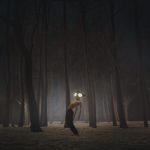
Atwood Magazine: Your music is like easily comparable to many other New York acts throughout history. But when did this post-punk sonic really begin to feel instinctive for you guys? Has it always been instinctive?
Gus Green: We made prog rock for a while, basically. And then right around when we started writing the songs for Projector we were getting into a lot of neo post-punk, just all around that general genre of music. All of us ended up liking it and usually that doesn’t happen. From there, it just grew. And then all of a sudden, we were making that kind of music.
Cameron Winter: Even in eighth and ninth grade when we were just sort of fooling around these big, ambitious, ten-minute songs with four or five parts. But then we listened to these other bands who just like had stripped back their sound to be really crazy with just guitars and bass in really good parts. We felt inspired by that and just tried to strip our sound down a little bit, but some of that atmospheric stuff that we had always fucked around with ended up in there anyway.
Tell me a little bit about the process of choosing Partisan? What about Partisan made sense with you guys?
Cameron Winter: Money! No, that’s not true. That’s not true. It’s low-key true, but it’s not true. We just felt that Partisan in the meeting that we had with Tim Putnam, who was the head of A&R there, he seemed to just really understand the music and he wasn’t blowing smoke. He had a real plan for the band that could allow us to grow and pursue an actual career. Everything else just sort of seemed like, “Yeah, we love the album, let’s do this thing!” He was like really sobering about it and he was like, we’re gonna do it this way and we will do it right. And it just it felt the best to all of us.
Were all of these opportunities the inspiration for ''Opportunity Is Knocking''?
Gus Green: You know, I couldn’t say, is that the answer Cameron?
Cameron Winter: No, because we had zero opportunities at the time of writing “Opportunity is Knocking.” It was the last song I thought maybe we’d ever make as Geese actually, now that I think about it. I tried to work really hard on those lyrics and they’re about trying to dissect what the experience of growing up was at that moment.
It has some of my favorite lyrics on the entire album, just a great third verse. That and the second verse on ''Rain Dance'' as well. ''I'm sorry I never picked up the phone/ But death is taking my ghost with my skin and my bones/ And I am my son, myself long ago I am what I've seen, I am who I've known/ And they are'' takes on like a very mature perspective. Where did that perspective come from?
Cameron Winter: For “Rain Dance” I was sort of inspired by those caretaker records about Alzheimer’s. It sort of represents how someone feels when they go deeper into like confusion and Alzheimer’s I was trying to write from the perspective of someone who was forgetting everything. And that sort of feeling of like dying before you’re actually dead, like your memory your brain just stops working was sort of surreal to me. It feels like your soul is getting killed when you have Alzheimer’s, it’s really disturbing.
What particular songs were you guys proud of the most?
Gus Green: Probably “First World Warrior” for me, I just like that it pulls the record into this more psychedelic sound space that you get on other songs but not as fully. I also worked on that one a bit more with Max. So I’m a bit partial to it.
Dominic DiGesu: I love “Exploding House,” not only from the lyrics but it’s kind of like three songs in one almost because there’s the intro and then it goes into the verse-chorus stuff, which is like the meat of the song, and then there’s the big outro. Especially live, it really does feel like three different sections of songs just chunked into one. I think it came out way better than it would sound on paper to put those sections together and Cameron’s delivery on that song is very, very beautiful.
Cameron Winter: I’ve come to like “Rain Dance” a lot as an opener, I think. And “Exploding House” too, I’ve come to like as well.
What was the first song you guys wrote for the record?
Dominic DiGesu: The first one was “Projector” which is some of the reason why that was the title track. I think it was about June 2019 when that demo was made, and it was originally called Fucker. That was the demo name for it.
Cameron Winter: Oh, Fucker, I forgot about that.
Dominic DiGesu: Yeah, that was the first one when we were in Max’s basement. And we thought the post-punk thing was cool. So we made the verse/guitar parts. The way that like the guitars intertwine in the verse was really a launching point to the two-guitar, post-punky type sound that we took for the rest of the album.
How do you create that manic, wiry guitar?
Gus Green: I was trying to emulate the guitar tones that you hear on a Women record, like Public Strain. And it’s different because I still don’t know how they do that. But I basically have that Earthquaker Devices pedal, the Palisades, I keep that on all the time and it breaks up the sound nice. And then I just run it through a Fender, maybe close to the bridge if I wanted to sound really brittle and get some weird like pitch intonation in there and then you got it.
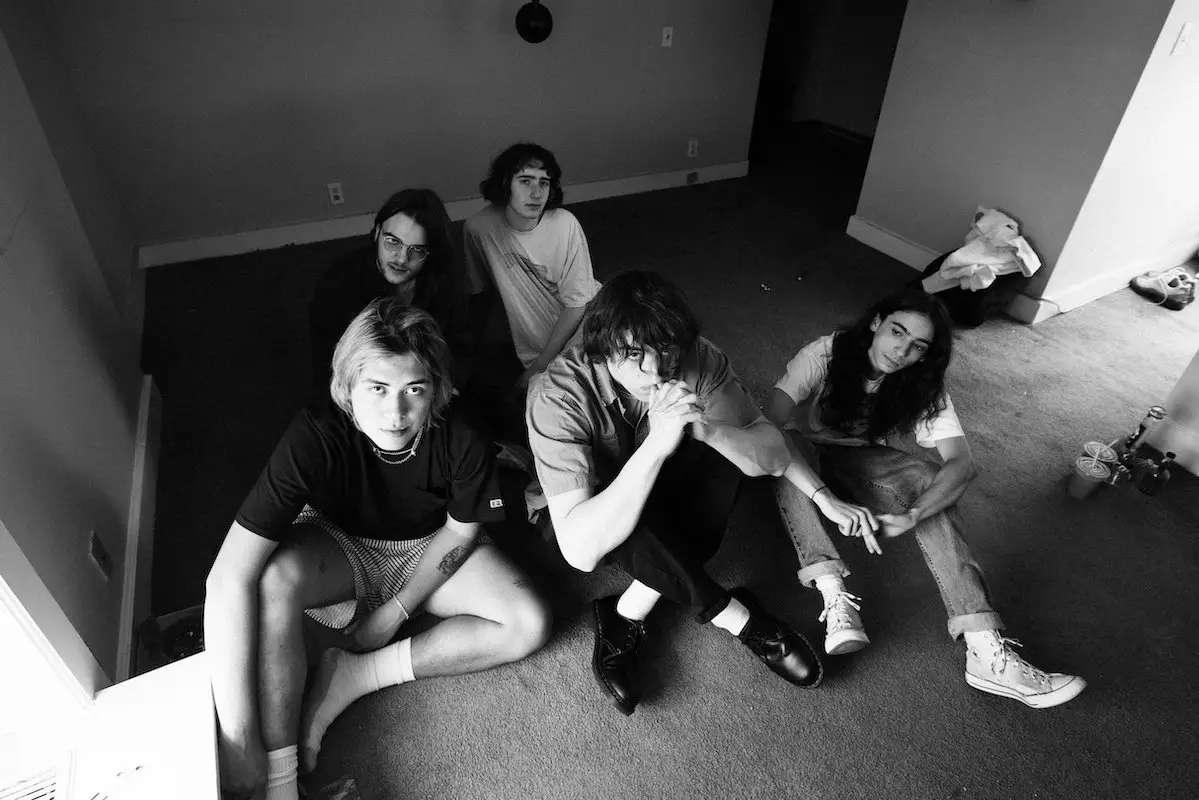
''Disco'' also features really fun yet nervous verses that switch into a somber pre-chorus. Was that a difficult song to put together?
Dominic DiGesu: The way that we kind of map out songs is like A B, C sections. And I remember the song had up to a G section, which was the first time we’d ever done something like that. Cameron kind of just dictated every single part and just said this is that section, this is this section, you guys just play it, note-for-note like I’m telling you. There were other songs where that didn’t happen, but “Disco” was a great example of Cameron’s vision just straight up put into a song.
Gus Green: We just had to learn that one really fast and so that worked well and then have another two years to actually just like shift the song into a different space. If we recorded it now it would sound pretty different.
Dominic DiGesu: That’s another thing about all these songs. We wrote them in 2019, most of them, so it’s been two three years since then and now, after playing them live so many times, we’ve kind of just added little things and made our parts like slightly more fun to play. The live version is almost like the remastered version of stuff that we wish we could have added to the recording.
Maybe when guys are legends, the fans can ask, ''When's the remaster?''
Gus Green: Then we’ll release the shitty demo that we have for the record and make a ton of money off of it. That’s what I’m banking on. If you wanted to hear what Geese sounds like if they recorded the record like Guided by Voices, that’s what it sounds like.
— —
:: stream/purchase Geese here ::
— — — —

Connect to Geese on
Facebook, Twitter, Instagram
Discover new music on Atwood Magazine
? © Daniel Topete
:: Stream Geese ::

